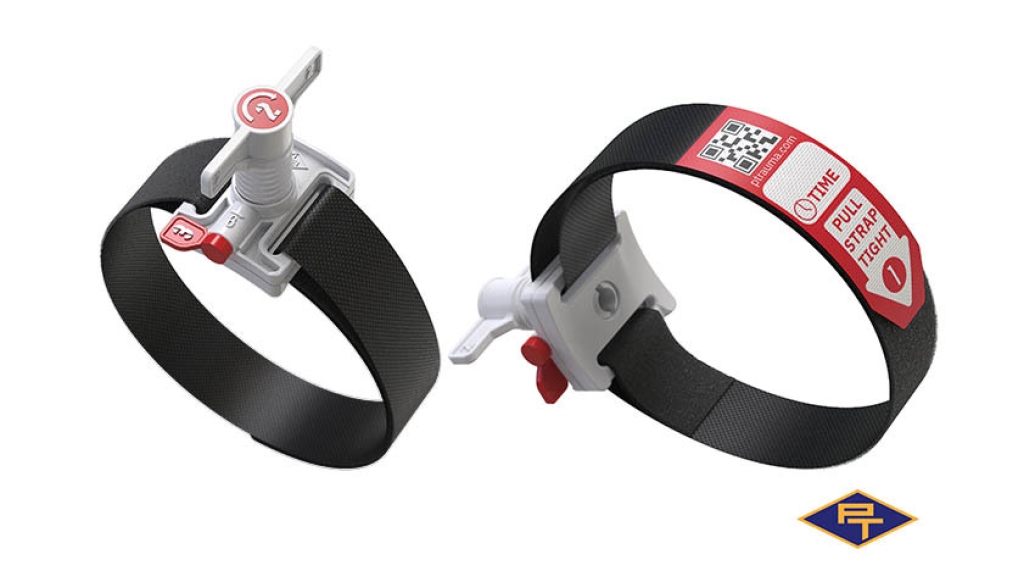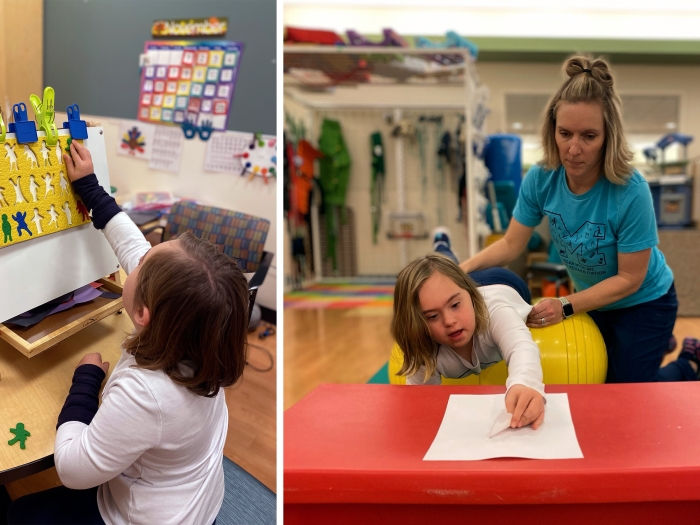Critical care researchers and veterans are bringing devices used to stop hemorrhage bleeds on the battlefield to civilian life.
3:58 PM
Author |

This article was adapted from an original article written by Megan VanStratt of the Michigan Center for Integrative Research in Critical Care.
A partnership between critical care researchers and veterans is bringing medical devices inspired by the battlefield to first responders and civilian life.
"The Michigan Center for Integrative Research in Critical Care's relationship with the veteran-operated company, Precision Trauma, provides a direct connection to emerging innovative trauma and combat casualty care products," says Kevin Ward, M.D., a professor of emergency medicine and executive director of MCIRCC.
The two teams are partnering together to find new ways to change and simplify the current approach to hemorrhages well before surgical care can be provided.
Their first product is a simple-to-use tourniquet built specifically for first responders and civilians. While a tourniquet is a commonly found device, their new design offers significant mechanical advantages that make it easier, faster and more effective in stopping a life-threatening hemorrhage from a bleeding limb. Designed by teams of clinicians and engineers at MCIRCC, the tourniquet is expected to reach the market by spring 2021 after undergoing refinement by the Precision Trauma team.
"Junctional and non-compressible torso (abdominal and pelvic) hemorrhage continue to be the greatest sources of potentially survivable death," says Ethan Miles, M.D., a veteran and one of three founders of Precision Trauma. "With MCIRCC's innovative hemorrhage control product line, our unique solutions enable the non-surgeon to achieve hemorrhage control and allow the patient to reach definitive care alive. Current solutions in the health care system require advanced training and dedicated teams to implement, and for the most part are not practical in the prehospital environment."
Establishing a relationship
The partnership between MCIRCC and Precision Trauma first began when Ward was presenting at an international trauma research conference on the training of special operations medics at the University of Michigan to prepare them to provide combat casualty care. He met Miles, who was currently serving as the 75th Ranger Regimental surgeon.
"It was my sixth year as a special operations physician, so I had already been receiving the benefits of Dr. Ward's quality training programs through my combat medics," Miles says.
After a brief introduction, it was clear the two had a lot in common.
Not long after, Ward teamed up with Miles to help the regiment develop a whole blood resuscitation program for the point of injury, or a blood transfusion that uses all the components of blood, not just one type of cells. "This program was the first of its kind and a true team effort," Miles says. "He was instrumental in its success."
Though Miles and Ward stayed in touch, it was years later that their partnership would reach new ground. In 2019, Ward invited the Army physician to visit the MCIRCC team at Michigan Medicine and observe their work.
"I knew that Ethan and his colleagues were natural problem solvers who would demolish barriers to get things done," says Ward, who is also a lieutenant colonel in the U.S. Army Reserve Medical Corp and part of an Army Forward Resuscitative Surgical Team charged with taking care of battlefield casualties in far forward areas. "Matching the right problem with total commitment to the mission would allow us to crush the problem."
It didn't take long for Miles to get excited about the opportunities available at MCIRCC.
"After meeting the team, touring the facility and a detailed discussion about the innovative research stream and products, I quickly called up two colleagues and friends, both of whom served with me in the 75th Ranger Regiment," Miles says. "We decided to form Precision Trauma and partner with MCIRCC to bring several exciting products to the market."
Much like the military service that preceded them, the team at Precision Trauma has the goal to help save lives at record rates. Miles, Jeffery Cain, M.D., a current practicing emergency physician and former ranger infantry officer and physician, and Peter Shull, a prior member of the Regiment, are focused on bringing practical life-saving devices to the right patient, at the right place, at the right time.
"Mission success in the military relies on innovation, preparation, teamwork and execution, which are all critical to the goals of Precision Trauma," Miles says. "The three of us have all seen a significant amount of trauma, adversity and mission success, and we genuinely believe our approach will change how trauma care is delivered by providing innovative solutions that will result in saving more lives."
Future goals
While Precision Trauma's product line is currently small, it was the company's bold mission that really stood out to the MCIRCC team when deciding to partner: "With the mission of saving the next patient at the forefront, we are now bringing this same innovation to the very communities we sought to protect over the last two decades."
After working with the U-M Office of Technology Transfer, Precision Trauma has acquired both a license to certain intellectual property and a formal option to license other intellectual property, as specified in the agreement.
MCIRCC's preclinical and clinical research cores are also working on additional solutions to control hemorrhage and more complex and catastrophic injuries experienced by both civilians and military personnel.
Both Ward and Miles view the relationship between MCIRCC and Precision Trauma as a long-term partnership, and have plans for the development of more products.
"We view this strategic partnership with Precision Trauma as a force multiplier to MCIRCC's mission of transforming critical care through innovation, integration and entrepreneurship," Ward says.
Dr. Ward is an inventor of licensed IP to and he has equity in, Precision Trauma, LLC.

Explore a variety of healthcare news & stories by visiting the Health Lab home page for more articles.

Department of Communication at Michigan Medicine
Want top health & research news weekly? Sign up for Health Lab’s newsletters today!





